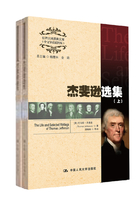
TO THE COUNT DE VERGENNES
Paris, August 15, 1785
.... The monopoly of the purchase of tobacco in France discourages both the French and American merchant from bringing it here, and from taking in exchange the manufactures and productions of France. It is contrary to the spirit of trade, and to the dispositions of merchants, to carry a commodity to any market where but one person is allowed to buy it, and where, of course, that person fixes its price, which the seller must receive, or re-export his commodity, at the loss of his voyage thither. Experience accordingly shows, that they carry it to other markets, and that they take in exchange the merchandise of the place where they deliver it. I am misinformed, if France has not been furnished from a neighboring nation with considerable quantities of tobacco since the peace, and been obliged to pay there in coin, what might have been paid here in manufactures, had the French and American merchants brought the tobacco originally here. I suppose, too, that the purchases made by the Farmers General, in America, are paid for chiefly in coin, which coin is also remitted directly hence to England, and makes an important part of the balance supposed to be in favor of that nation against this. Should the Farmers General, by themselves, or by the company to whom they may commit the procuring these tobaccos from America, require, for the satisfaction of government on this head, the exportation of a proportion of merchandise in exchange for them, it would be an unpromising expedient. It would only commit the exports, as well as imports, between France and America, to a monopoly, which, being secure against rivals in the sale of the merchandise of France, would not be likely to sell at such moderate prices as might encourage its consumption there, and enable it to bear a competition with similar articles from other countries. I am persuaded this exportation ot coin may be prevented, and that of commodities effected, by leaving both operations to the French and American merchants, instead of the Farmers General. They will import a sufficient quantity of tobacco, if they are allowed a perfect freedom in the sale; and they will receive in payment, wines, oils, brandies, and manufactures, instead of coin; forcing each other, by their competition, to bring tobaccos of the best quality; to give to the French manufacturer the full worth of his merchandise, and to sell to the American consumer at the lowest price they can afford; thus encouraging him to use, in preference, the merchandise of this country....
While the advantages of an increase of revenue to the crown, a diminution of impost on the people, and a payment in merchandise, instead of money, are conjectured as likely to result to France from a suppression of the monopoly on tobacco, we have also reason to hope some advantages on our part; and this hope alone could justify my entering into the present details. I do not expect this advantage will be by any augmentation of price. The other markets of Europe have too much influence on this article to admit any sensible augmentation of price to take place. But the advantage I principally expect is an increase of consumption. This will give us a vent for so much more, and, of consequence, find employment for so many more cultivators of the earth; and in whatever proportion it increases this production for us, in the same proportion will it procure additional vent for the merchandise of France, and employment for the hands which produce it. I expect, too, that by bringing our merchants here, they would procure a number of commodities in exchange, better in kind, and cheaper in price. It is with sincerity I add, that warm feelings are indulged in my breast by the further hope, that it would bind the two nations still closer in friendship, by binding them in interest. In truth, no two countries are better calculated for the exchanges of commerce. France wants rice, tobacco, potash, furs, and ship-timber. We want wines, brandies, oils, and manufactures. There is an affection, too, between the two people, which disposes them to favor one another. If they do not come together, then, to make the exchanges in their own ports, it shows there is some substantial obstructions in the way. We have had the benefit of too many proofs of his Majesty's friendly disposition towards the United States, and know too well his affectionate care of his own subjects, to doubt his willingness to remove these obstructions, if they can be unequivocally pointed out. It is for his wisdom to decide, whether the monopoly, which is the subject of this letter, be deservedly classed with the principal of these. It is a great comfort to me, too, that, in presenting this to the mind of his Majesty, your Excellency will correct my ideas where an insufficient knowledge of facts may have led me into error; and that, while the interests of the King and of his people are the first objects of your attention, an additional one will be presented by those dispositions toward us, which have heretofore so often befriended our nation.
I avail myself of this occasion to repeat the assurance of that high respect and esteem, with which I have the honor to be your Excellency's most obedient, and most humble servant.